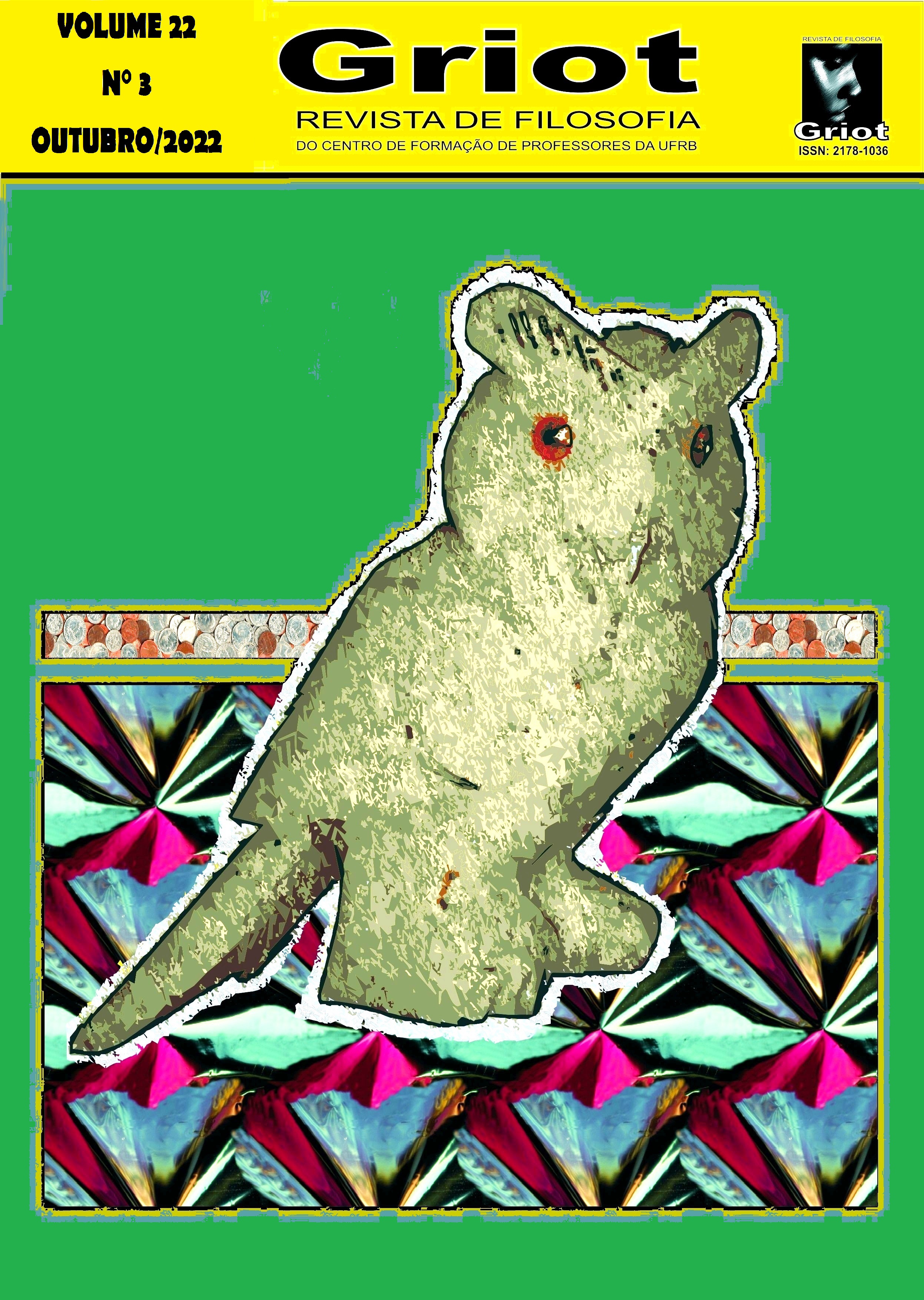The problem of intelect-brain relation in Schopenhauer’s work with special emphasis on the “Zeller’s paradox”
DOI:
https://doi.org/10.31977/grirfi.v22i3.3034Keywords:
Intelect; Brain; Circularity.Abstract
This paper has as main goal to investigate and circumscribe the problematic relation between intellect and brain in Arthur Schopenhauer’s work, under the consideration of the well known Eduard Zeller’s formulation of the problem. In this way, the concepts of intellect and brain might be considered according to the major explanation of the metaphysics of nature, having as main idea the distinction between the two ways of considering the world presented simultaneously in The world as will and representation and improved and developed in the author’s posterior works. If, on the one hand, the world is object of investigation through subjectivity and its forms of existence, on the other hand it is considered through the objective way which, firstly, admit the object as existing by itself, independently of any subject. Without an independent existence, in so far each object depend on subjectivity, both modes must contribute to the complete understanding of the world as a whole as complementary parts: the intellect must be understood from the objective point of view and the brain according to the subjective analysis of the world that leads to the metaphysical conclusions of Schopenhauer’s work, whose aim include putting it in the general explanation of nature.
Downloads
References
BRANDÃO, E. A concepção de matéria na obra de Schopenhauer. São Paulo: Humanitas, 2009.
CACCIOLA, M. L. Schopenhauer e a questão do dogmatismo. São Paulo: Editora da Universidade de São Paulo, 1994.
JANAWAY, C. Self and World in Schopenhauer's Philosophy. United States: Oxford University Press, 2001.
PETERS, M. "Will" and "Flesh": Schopenhauer and Mearleau-Ponty on Corporeality. In.: Schopenhauer Jarhbuch, 1994.
SCHMICKING, D. Schopenhauer on Unconscious Intelligence and Embodied cognition. In.: History of Philosophy Quarterly, Vol. 24, Nº1 (Jan., 2007), pp. 89-108.
SCHOPENHAUER, A. O mundo como vontade e como representação, tomo I. Tradução, apresentação, notas e índices de Jair Barboza. São Paulo: Editora UNESP, 2005.
SCHOPENHAUER, A. O mundo como vontade e como representação, tomo II. Tradução, apresentação, notas e índices de Jair Barboza. São Paulo: Editora UNESP, 2015.
SCHOPENHAUER, A. Die Welt als Wille und Vorstellung Band I. Frankfurt am Main: Suhrkamp, 1998.
SCHOPENHAUER, A. On the fourfold root of the principle of sufficient reason and other writings. Translated by David E. Cartwright, Edward E. Erdmann and Christopher Janaway. London: Cambridge University Press, 2012.
SCHOPENHAUER, A. Obras incompletas. Trad. Wolfgang Leo Maar e Maria Lúcia Cacciola. Col. Os pensadores. São Paulo: Abril cultural, 1974.
SEGALA, M. Metaphysics and the sciences in Schopenhauer. In.: SHAPSHAY, S. (Org.) The Palgrave Schopenhauer Handbook. London: Palgrave Macmillan, 2017, pp. 151-175.
SEGALA, M. Philosophie de la nature et sciences chez Schopenhauer. Les études philosophiques, nº 102, 2012/3, pp. 389-408.
WICKS, B. L. Schopenhauer's On the will in nature: The reciprocal containment of Idealism and Realism. In.: VANDANABEELE, B. A companion to Schopenhauer. United Kingdom: Wiley-Blackwell, 2012, pp. 147-162.
ZELLER, E. Geschichte der deutschen Philosophie seit Leibniz. München, 1873.
Downloads
Published
How to Cite
Issue
Section
License
Copyright (c) 2022 Pedro Damasceno Uchôas

This work is licensed under a Creative Commons Attribution 4.0 International License.
The authors who publish in Griot: Revista de Filosofia maintain the copyright and grant the magazine the right of first publication, with the work simultaneously licensed under the Creative Commons Attribution 4.0 International License, allowing sharing and adaptation, even for commercial purposes, with due recognition of authorship and initial publication in this journal. Read more...









































































